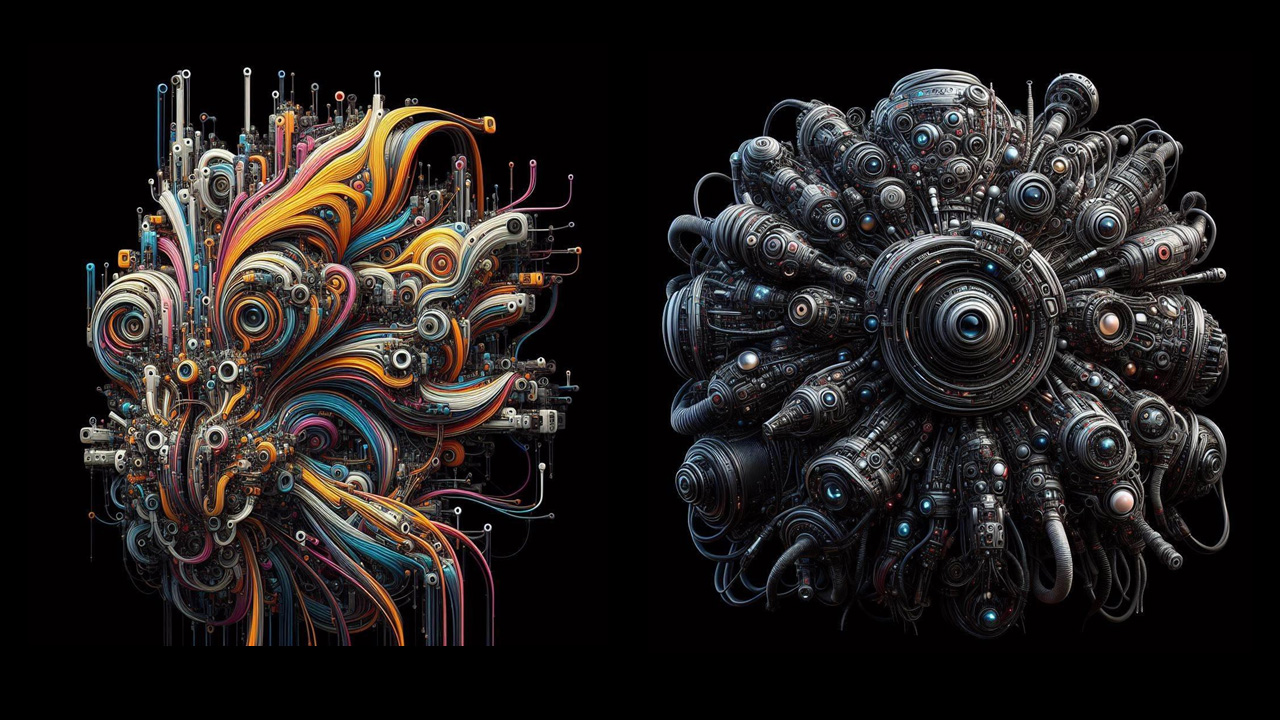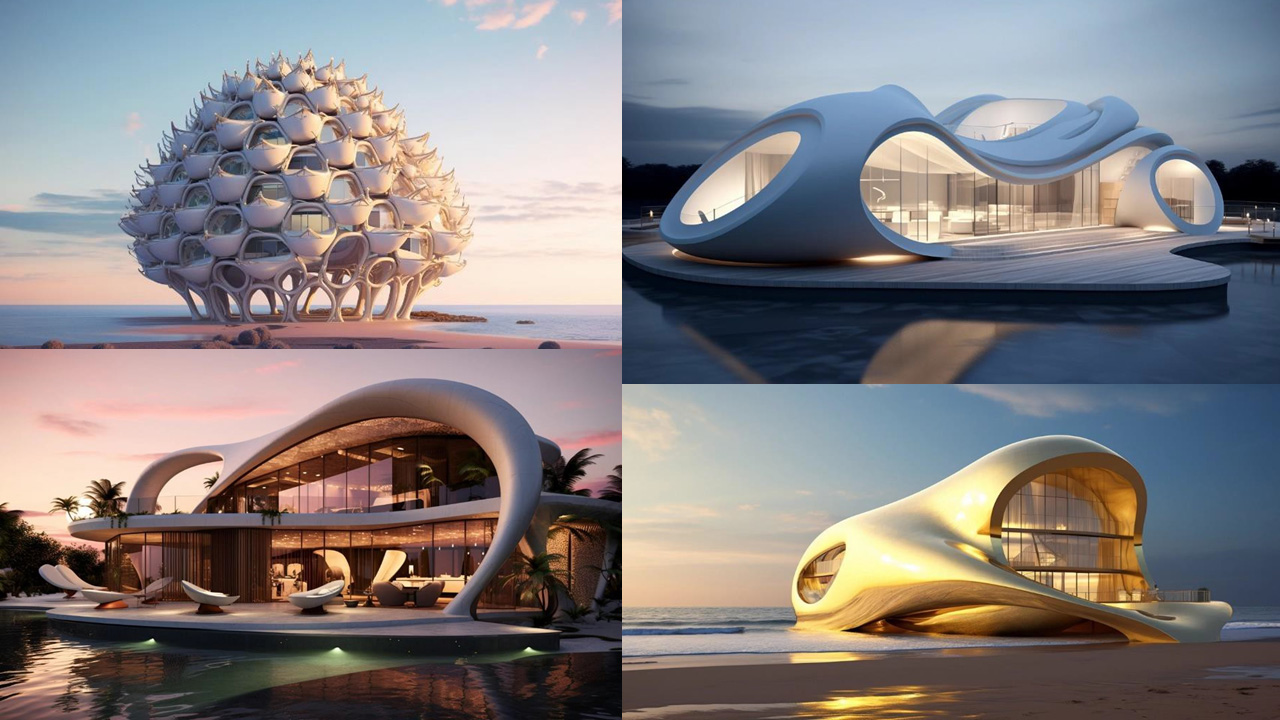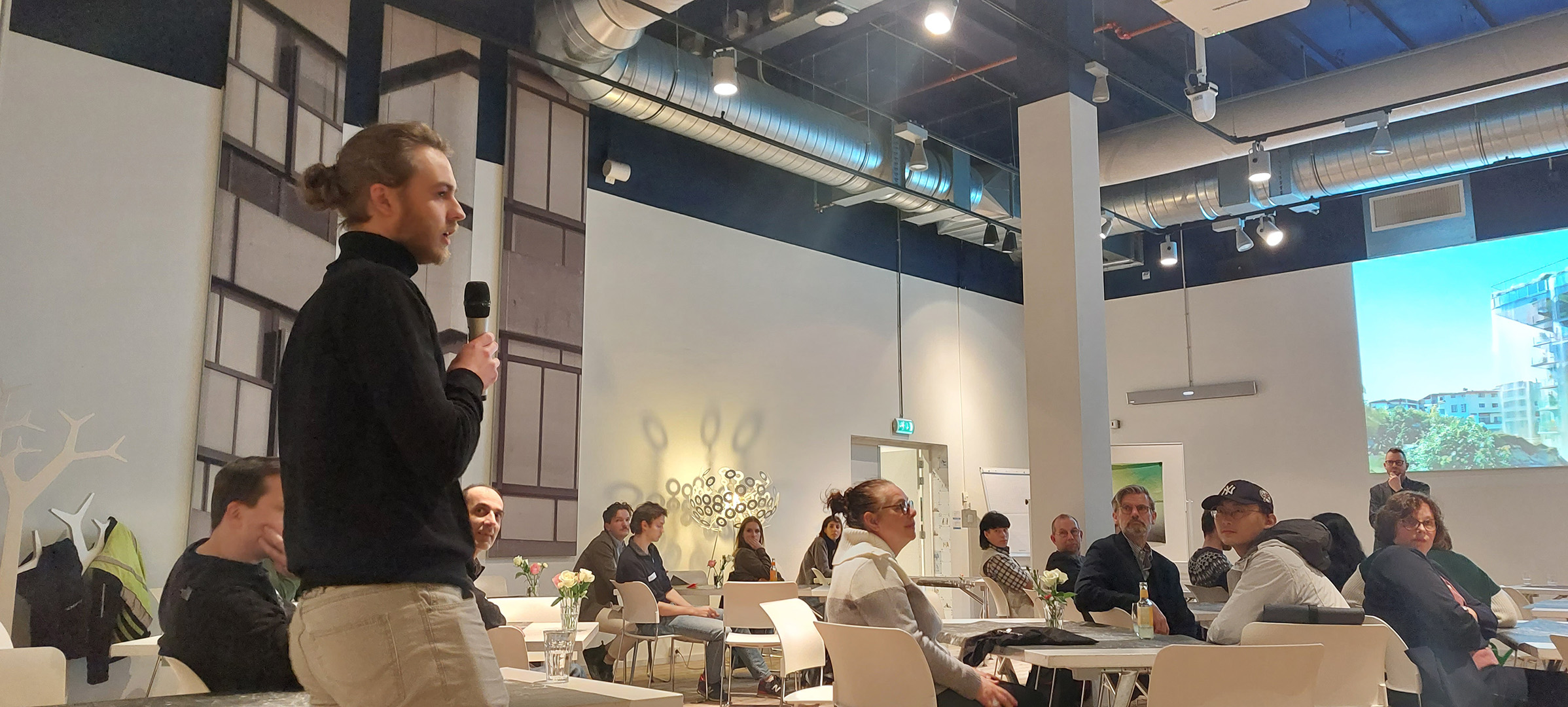Third community dinner: what does our faculty know and think about AI?
On Tuesday 13 February, the third 'community dinner' revolved around artificial intelligence. A string of speakers, both BK researchers and third parties, told the 60 or so attendees about their experiences with AI. The focus was on the new generative AIs such as ChatGPT and MidJourney. Most of the speakers and guests seemed enthusiastic about the possibilities these AIs offer for research, teaching, and design.
The evening started with a light-hearted account of how architect Frits de Kleine and AI consultant Ewout Noyons first encountered ChatGPT. By arguing with the application, they quickly encountered the limitations of the system: "it felt like Chat was just saying whatever in an attempt to befriend us". Their sceptical conclusion was further developed by the next speaker, researcher Christoph Lofi. He reminded the audience of the cyclical phenomenon of 'AI hype' that breaks out every five to ten years. While generative AIs certainly look impressive, there is still much work to be done in the underlying technologies and processes.

The next three speakers explicitly asked for the audience's opinion. Researcher Willem-Paul Brinkman demonstrated possible prospects for applying generative AIs in the design process. He asked the audience how this technology might change education at BK and the work of BK alumni. Researcher Dave Murray-Rust then explained some exercises which make students think critically about the strengths and weaknesses of AI. He was open to discussing the future role of AI in society. Then researcher Seyran Khademi asked attendees to rank themselves on two spectra. Are you optimistic or sceptical towards AI? And do you think AI is going to change our lives, or is it just a tool?

In any case, architect Cas Esbach is using AI to great effect. In his presentation, he used dozens of renders and screenshots to show how generative AI changed his work. With this technology, it is now possible to create, visualise, and modify designs at lightning speed. After these impressive examples, researcher Stefan van der Spek asked specific target groups in the hall what they think about the impact of this technology on their profession. What will AI bring the students, architects, researchers, or employees in the near future?

The evening was concluded by Rob Mudde, Vice-president Education at the university, who expressed enthusiasm for the social and intellectual value of open discussions between members of the TU community. Of course, the team behind the community dinners fully agrees, and hopes everyone feels welcome to join them at the next edition!
More information
Christoph and Willem-Paul work within TU Delft's AI initiative. Within this network you will also find Dave, co-lab director of the AI Futures Lab, and Seyran, co-lab director of the AiDAPT Lab. You can subscribe to the weekly TU Delft AI newsletter via this link.
This dinner was arranged by Cecile Calis (BK Community Officer), Frits de Kleine (lecturer at BK and architect), Anna Serysheva (master's student at BK, also works at @Hok) and Maryam Naghibi (postdoctoral researcher at BK). With additional help and advice by Charlotte Boelens (Community Manager AI Labs) and Georg Vrachliotis (Professor of Building Knowledge, BK).
The next community dinner will take place on Tuesday 2 April and will focus on Glass Ceilings.
